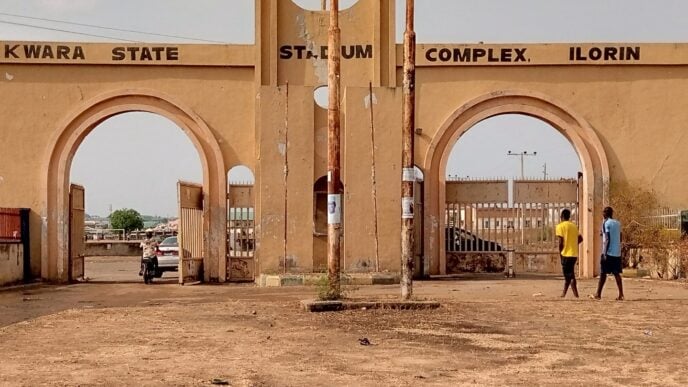The conversation around gender equity in governance is not just timely it’s urgent. For decades, Nigeria has witnessed the persistent underrepresentation of women in its political and legislative institutions. In an attempt to address this imbalance, there have been calls for reserved seats for women in the National Assembly.
On the surface, this proposal appears to be a bold, progressive move to give women a stronger voice in politics. However, beneath its well meaning veneer lies a model that may ultimately undermine the very goal it sets out to achieve: true equity.
While some may view reserved seats as a shortcut to inclusion, I argue that this approach would not only dilute the integrity of democratic representation but also entrench systemic disparities by creating a lower tier of participation for women. Here are four major concerns:
1. Tokenism Disguised as Representation
Advertisement
In a representative democracy, legitimacy flows from the people through open, competitive elections. Lawmakers derive their authority from the mandate of their constituents not from appointments or technical allowances. By allocating reserved seats outside the electoral process, we risk creating a class of legislators whose voices carry less weight, not just politically, but symbolically.
Women placed in parliament through reservation schemes may be perceived as political tokens but participants in a quota system rather than contenders in a merit-based contest. This perception undermines their legislative power and moral authority, no matter how capable they may be. In practice, they may find themselves sidelined in crucial decision-making, not because of their gender, but because of the method of their entry.
2. A New Bar Below Equity
Advertisement
Rather than dismantling barriers to entry, reserved seats may inadvertently reinforce them. They send an unspoken message that women require special treatment to enter politics, that women cannot win on their own merit. This, in turn, fuels stereotypes and subtly discourages young girls from aspiring to real political power.
What Nigeria needs is not a separate lane for women, but an open road where all can compete equally. True equity means removing obstacles, not creating side paths. If we institutionalize reserved seats, we normalize inequality under the pretense of correction.
3. Constitutional Disruption Without Real Reform
The Nigerian Constitution does not currently accommodate reserved legislative seats based on gender. To implement such a policy, extensive constitutional amendments would be required. These changes would involve altering the structure of constituencies, adjusting the rules for representation, and potentially creating parallel electoral processes.
Advertisement
Yet, amid this complex constitutional overhaul, there is little discussion about the broader implications. We are attempting to insert a corrective mechanism into a faulty system, without addressing the root problems: lack of internal party democracy, a monetized electoral process, and a culture that rewards godfatherism over competence.
Without fundamental reforms in these areas, reserved seats become a bandage on a broken limb. We must ask ourselves: are we truly ready to change the political culture, or are we simply trying to manage its symptoms?
4. Institutionalizing Symbolic Roles
The idea of reserved seats bears uncomfortable resemblance to the role of “Women Leader” in political parties: a position often symbolic, rarely influential, and almost always disconnected from the party’s core decision-making structures. By translating this symbolic accommodation to the National Assembly, we institutionalize roles that are more ornamental than functional.
Advertisement
This approach does not empower women to lead; it merely allows them to be present. Presence without power is not representation, it is non performance. Nigeria needs women who can compete, win, and legislate with authority not just women who can occupy space.
The Real Solution: Level the Playing Field
Advertisement
If we truly believe in equity and representation, the answer does not lie in shortcuts it lies in reform. One of the most significant barriers facing women in Nigerian politics is not capability or ambition; it is access. And access, more often than not, is controlled by money.
Cap Campaign Spending
Advertisement
In a system where campaign costs often run into hundreds of millions of naira, most capable candidates especially women and young people are shut out before they begin. By capping campaign expenditure, we remove one of the biggest structural impediments to fair participation. Leveling the financial playing field ensures that elections become contests of ideas, not auctions for the highest bidder.
Enforce Internal Party Democracy
Political parties must open up their processes. Primaries must be transparent and free from the grip of political elites. When party candidates are selected based on merit and popularity not connections and money and women stand a far greater chance of emerging as credible contenders.
Advertisement
Global Realities: What Champions of Gender Equity Actually Did
Countries often referenced as champions of gender inclusion such as Finland, Sweden, and New Zealand did not begin their journey with reserved seats. They began by transforming the political and social environment to encourage participation. These nations promoted education, financial empowerment, social safety nets, and most importantly, fair political structures.
Rwanda, often cited as a successful case for women’s representation due to its high number of female parliamentarians, operates under an entirely different national context. The country’s post-genocide political framework, strong central leadership, and unique reconciliation model make it a poor fit for comparison with Nigeria’s pluralistic and highly competitive democracy.
In contrast, Nigeria must forge its own path:one that respects our constitution, values merit, and promotes reform.
No Handouts, Just Fairness
Equity must not be a handout; it must be earned in a system that is designed to be fair. Rather than manufacture space for women through reserved seats, we must remove the barriers that prevent them from participating fully and freely.
True representation is not something that can be gifted but it must be won. And it can only be won when the system does not favour wealth over worth, gender over genius, or power over principle.
Let’s not create a legislative balcony for women to observe from. Let’s open the doors to the main floor and let them lead.
For the love of country,
Kunle Lawal
Views expressed by contributors are strictly personal and not of TheCable.











